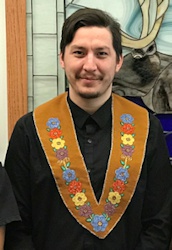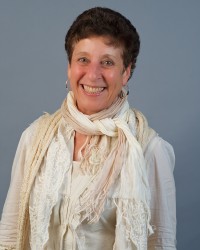First Nations: Going Global for the Environment
April 24th, 2019 12:00PM -1:30PM
Among the first to face the direct consequences of climate change are indigenous peoples who depend upon and have close relationships with the environment and its resources. How does climate change and environmental degradation pose threats and dangers that affect indigenous peoples’ livelihoods, culture, and lives? How are indigenous communities empowered to take action locally and globally? Join the World Affairs Council for a roundtable discussion with Dana Tizya-Tramm, Chief of the Vuntut Gwitchin First Nation in Old Crow, Yukon, Canada, on how the consequences of climate change and environmental degradation are undermining indigenous ways of life and ways indigenous communities are taking real action.
About the Speaker:
 Dana Tizya-Tramm is Chief of the Vuntut Gwitchin First Nation, located in Old Crow, Yukon Territory, a fly-in community located 80 miles north of the Arctic Circle in Canada. Chief Dana was sworn into office in January 2019, and is believed to be one of the youngest chiefs in the history of the First Nation. He was raised by a single mother in the residential school system in Canada, spending his youth in both Old Crow and in the province of British Columbia. Upon returning to Old Crow as a young adult, Chief Dana built multiple indigenous youth organizations focused on empowerment, leadership development, and cultural revitalization, before joining the Vuntut Gwitchin First Nation’s self-government council as a council member. In the Gwitchin language, Vuntut Gwitchin means “people of the lakes,” and the Gwitchin’s ancestral lands span Alaska, Yukon, and Northwest Territories.
Dana Tizya-Tramm is Chief of the Vuntut Gwitchin First Nation, located in Old Crow, Yukon Territory, a fly-in community located 80 miles north of the Arctic Circle in Canada. Chief Dana was sworn into office in January 2019, and is believed to be one of the youngest chiefs in the history of the First Nation. He was raised by a single mother in the residential school system in Canada, spending his youth in both Old Crow and in the province of British Columbia. Upon returning to Old Crow as a young adult, Chief Dana built multiple indigenous youth organizations focused on empowerment, leadership development, and cultural revitalization, before joining the Vuntut Gwitchin First Nation’s self-government council as a council member. In the Gwitchin language, Vuntut Gwitchin means “people of the lakes,” and the Gwitchin’s ancestral lands span Alaska, Yukon, and Northwest Territories.
About the Moderator:

Nadine C. Fabbi is Managing Director of the Canadian Studies Center and Arctic and International Relations in the Henry M. Jackson School of International Studies at the University of Washington in Seattle, Washington; and Lead for the Arctic International Policy Institute Arctic Fellows initiative in the Jackson School. Her doctorate is in Educational Leadership and Policy in the Faculty of Educational Studies at the University of British Columbia. Her research interests include how we understand the Arctic as a unique region in the field of area studies and international studies and what this means in higher education; how Arctic Indigenous internationalism is influencing international relations and regimes such as the Arctic Council; and how policy and spatial activism in Arctic foreign and domestic policies are reshaping how we think about international relations and social justice. Nadine is a founding member and chair of the minor in Arctic Studies at the University of Washington. She is the Council Representative for University of the Arctic and serves on its Academic Leadership Team; and serves as a board member for the University’s Future of Ice initiative.